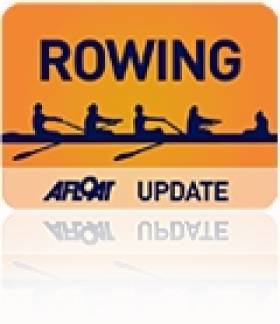Displaying items by tag: English
#ROWING: Ireland’s Eimear Lambe and Jasmine English came within .07 of a second of an A Final placing at the European Junior Rowing Championships in Hazewinkel in Belgium today. The Russia double scull edged out the Irish. Lambe and English later placed sixth in the B Final.
Conor Carmody and David O’Malley won the C Final of the men’s double sculls, placing them 13th overall. They had earlier won their semi-final.
The Ireland junior pair and women’s single competed in C Finals, but were not contenders.Both finished fourth of four crews.
European Junior Rowing Championships, Hazewinkel, Belgium (Irish interest):
Saturday
Men
Pair – Heat Two (First Two Directly to A/B Semi-Finals: 5 Ireland (D Keohane, B Keohane) 7:30.39. Repechage: 5 Ireland 7:34.21
Double Sculls – Heat Three (First directly to A/B semi-finals): 4 Ireland (C Carmody, D O’Malley) 6:56.91. Repechage: 4 Ireland.
Women
Double Sculls – Heat One (First Two Directly to A/B Semi-Finals): 2 Ireland (J English, E Lambe) 7:54.10.
Single Sculls – Heat Three (First Two directly to A/B Semi-finals): 5 Ireland (E Barry) 8:38.33. Repechage: 5 Barry 9:05.20.
Sunday
Men
Pair – C Final (13 to 16): 4 Ireland.
Double – C/D Semi-Final Two: 1 Ireland. C Final:
Women
Double – A/B Semi-Final Two (First Three to A Final): 1 Netherlands 7:19.32, 2 Lithuania 7:24.83, 3 Russia 7:25.57, 4 Ireland 7:24.64. B Final (Places 7 to 12): 6 Ireland.
Single – C Final (13 to 16): 4 Ireland.





























































